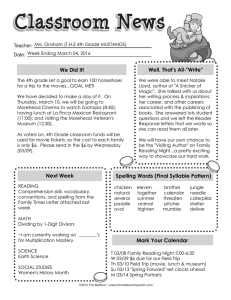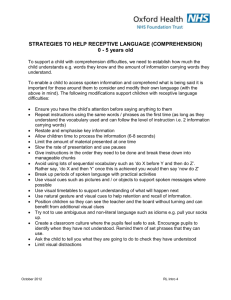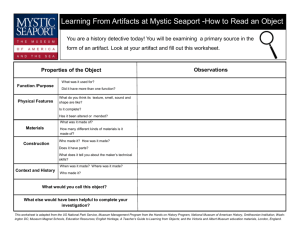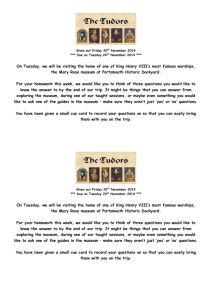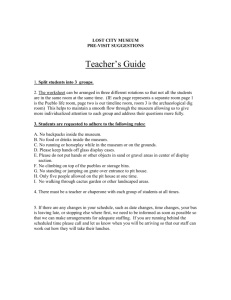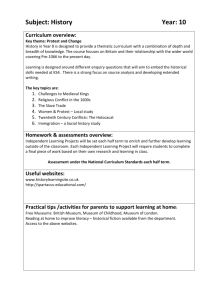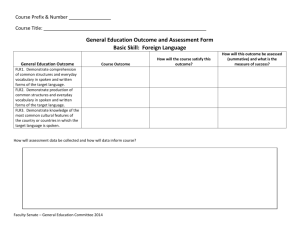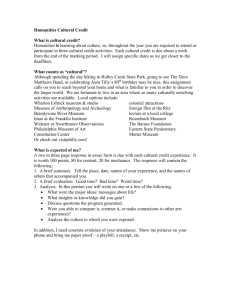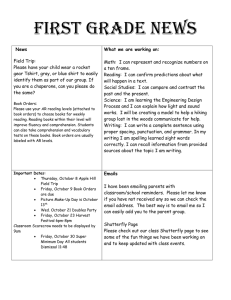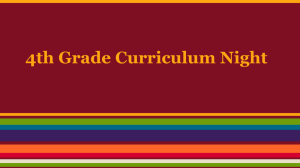RL02-Development-of-Comprehension-5-11
advertisement
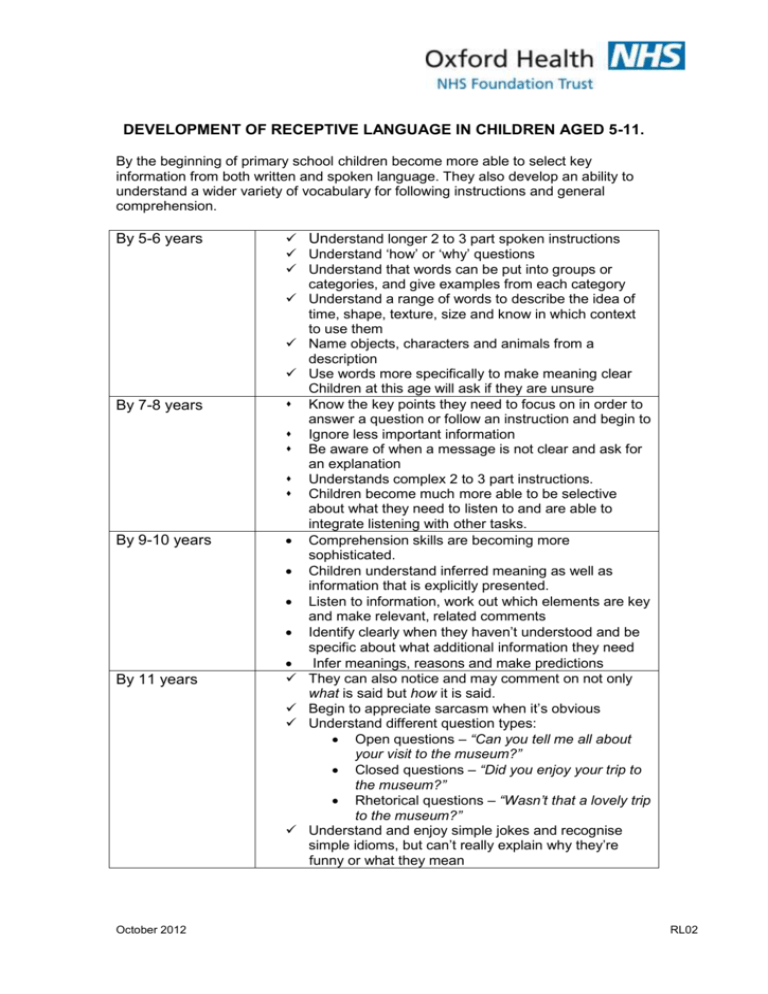
DEVELOPMENT OF RECEPTIVE LANGUAGE IN CHILDREN AGED 5-11. By the beginning of primary school children become more able to select key information from both written and spoken language. They also develop an ability to understand a wider variety of vocabulary for following instructions and general comprehension. By 5-6 years By 7-8 years By 9-10 years By 11 years October 2012 Understand longer 2 to 3 part spoken instructions Understand ‘how’ or ‘why’ questions Understand that words can be put into groups or categories, and give examples from each category Understand a range of words to describe the idea of time, shape, texture, size and know in which context to use them Name objects, characters and animals from a description Use words more specifically to make meaning clear Children at this age will ask if they are unsure Know the key points they need to focus on in order to answer a question or follow an instruction and begin to Ignore less important information Be aware of when a message is not clear and ask for an explanation Understands complex 2 to 3 part instructions. Children become much more able to be selective about what they need to listen to and are able to integrate listening with other tasks.8 Comprehension skills are becoming more sophisticated. Children understand inferred meaning as well as information that is explicitly presented. Listen to information, work out which elements are key and make relevant, related comments Identify clearly when they haven’t understood and be specific about what additional information they need Infer meanings, reasons and make predictions They can also notice and may comment on not only what is said but how it is said. Begin to appreciate sarcasm when it’s obvious Understand different question types: Open questions – “Can you tell me all about your visit to the museum?” Closed questions – “Did you enjoy your trip to the museum?” Rhetorical questions – “Wasn’t that a lovely trip to the museum?” Understand and enjoy simple jokes and recognise simple idioms, but can’t really explain why they’re funny or what they mean RL02
